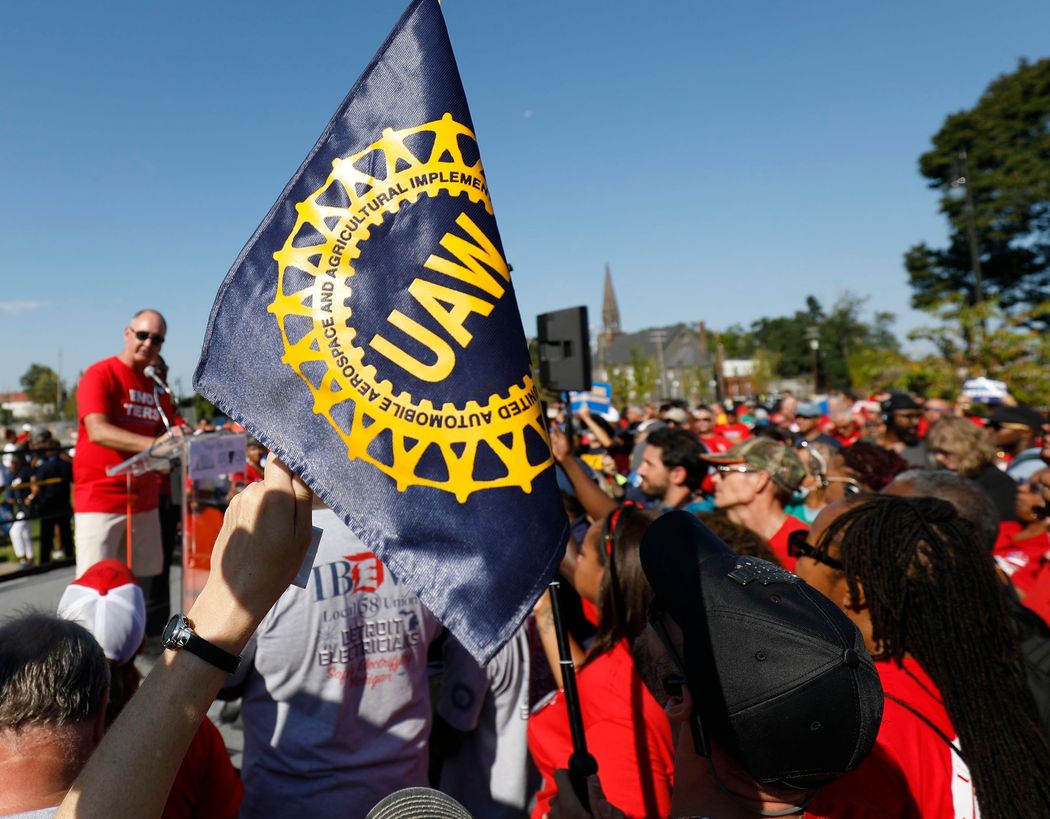
Greg Volynsky is a student at Harvard Law School.
In Today’s News & Commentary, United Auto Workers strike against the Big Three.
For the first time in its 88-year history, the United Auto Workers (UAW) union has called a strike against all three Detroit automakers simultaneously. On Friday, roughly 13,000 U.S. auto workers walked off the job, due to a significant divide between the union’s contract demands and the offers of Detroit’s three major car manufacturers. The UAW called the strike “our generation’s defining moment . . . across the entire working class”, while Reuters called it “the most ambitious U.S. industrial labor action in decades.”
In an “absolutely unprecedented” move, the UAW has engaged in a limited “Stand Up Strike”, involving—for now—fewer than 10 percent of the union’s nearly 150,000 members. The union explained that “[t]his is a strike that grows over time, giving our national negotiators maximum leverage and maximum flexibility.” By calling a limited strike and targeting plants producing vehicles with lower profit margins, the UAW is mounting pressure without cornering the companies or squeezing its own strike fund. Professor Marick Masters of Wayne State University in Detroit summarized, “You put an animal in the corner and it’s dangerous.”
The UAW is demanding a 36 percent wage increase over four years, having conceded the initial demand of a 46 percent raise. After initially proposing around 9 or 10 percent four-year raises, GM and Ford have proposed 20 percent, while Stellantis has offered a 17.5 percent. Beyond wage increases, the UAW is advocating for the restoration of cost-of-living pay raises, elimination of varying wage tiers, a 32-hour four-day workweek, pension boosts, and other benefits.
The strike comes four years after a 40-day GM strike, involving 48,000 workers, that cost the company $4 billion. Moody’s Analytics estimates a six-week strike could cost each of the companies $5.4 billion. When the companies said they cannot afford the wage increase the union demands, UAW President Shawn Fain responded, “The cost of labor that goes into a vehicle is 5%. They could double our wages, not raise prices of vehicles, and they would still make billions.” The three automakers reported a combined $250 billion in profits over the past decade.
The strike is led by Fain, who was an electrician and UAW member for two decades before being elected to lead the organization in late March of this year. As Swap reported, Fain advocated for a more aggressive negotiating strategy, running on a platform of “No corruption. No concessions. No tiers.”
Roughly 97 percent of union members voted to authorize a strike in late August. As I reported earlier this month, the UAW filed a labor complaint against GM and Stellantis, alleging they failed to bargain in good faith as the union contract neared expiration. Fain termed threats of plant closures “economic terrorism.”
President Biden is expected to deliver remarks on the strike. The White House said President Biden has been in touch with Fain and leaders of the auto companies. As Michelle reported yesterday, the Biden administration may take “economic measures” to protect the Big 3’s smaller supplier firms and prevent supply chain disruption.






Daily News & Commentary
Start your day with our roundup of the latest labor developments. See all
February 18
A ruling against forced labor in CO prisons; business coalition lacks standing to challenge captive audience ban; labor unions to participate in rent strike in MN
February 17
San Francisco teachers’ strike ends; EEOC releases new guidance on telework; NFL must litigate discrimination and retaliation claims.
February 16
BLS releases jobs data; ILO hosts conference on child labor.
February 15
The Office of Personnel Management directs federal agencies to terminate their collective bargaining agreements, and Indian farmworkers engage in a one-day strike to protest a trade deal with the United States.
February 13
Sex workers in Nevada fight to become the nation’s first to unionize; industry groups push NLRB to establish a more business-friendly test for independent contractor status; and UFCW launches an anti-AI price setting in grocery store campaign.
February 12
Teamsters sue UPS over buyout program; flight attendants and pilots call for leadership change at American Airlines; and Argentina considers major labor reforms despite forceful opposition.